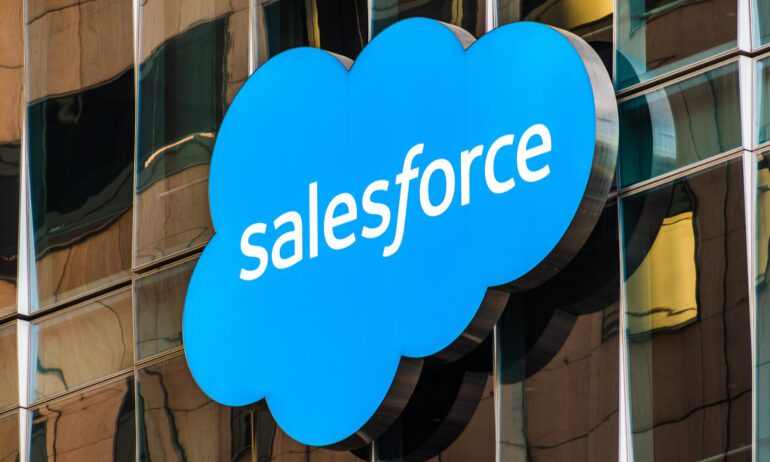TL;DR:
- Salesforce is planning to hire 3,300 employees after a significant workforce reduction earlier.
- The recruitment drive aims to support innovation in generative AI and promote popular products like the Data Cloud.
- Salesforce has integrated generative AI features into its Data Cloud and is launching chatbots.
- Recent releases include Einstein Studio, AI Cloud, and various GPT-powered solutions.
- New hires will span sales, engineering, and Data Cloud development, with a focus on “boomerang” hires.
- Strategic layoffs may still occur, reflecting a trend in tech companies reallocating resources.
- This hiring strategy aims to recover 40% of the earlier laid-off workforce and secure Salesforce’s market position.
Main AI News:
In a remarkable turnaround strategy, Salesforce is set to embark on a significant hiring spree, aiming to bring on board 3,300 new employees. This ambitious move comes on the heels of an unfortunate January episode where the company had to lay off 8,000 staff members. Notably, this recruitment plan also includes the rehiring of some of its former employees.
Salesforce’s visionary leadership, CEO Marc Benioff and Chief Operating Officer Brian Millham, disclosed in an exclusive interview with Bloomberg that this massive recruitment drive is in line with the company’s strategic thrust into emerging areas like generative AI while continuing to promote its renowned products, including the Salesforce Data Cloud.
The company has been actively enhancing its product portfolio, with a particular focus on integrating innovative generative AI features into its Data Cloud offerings. A pivotal moment in this evolution was revealed at the recent Dreamforce conference, where Salesforce announced the revamp of its Data Cloud, now geared to support generative AI capabilities. Furthermore, the company is on the cusp of deploying omnipresent chatbots to selected customers by the end of the year.
Salesforce’s commitment to AI innovation is further evidenced by the release of Einstein Studio, a cutting-edge no-code, interface-based AI and generative AI model training tool, integrated into its Data Cloud ecosystem. In addition, the company unveiled AI Cloud, a comprehensive offering that consolidates various GPT-powered solutions, such as Slack GPT, Tableau GPT, Apex GPT, MuleSoft GPT, Flow GPT, Service GPT, Marketing GPT, and Commerce GPT. This, alongside the introduction of the new Einstein Trust layer and a prompt engineering tool for training large language models, demonstrates Salesforce’s dedication to staying at the forefront of AI technology.
The strategic hiring initiative will encompass various departments, with a focus on sales, engineering, and the team responsible for advancing the Data Cloud. Importantly, Salesforce envisions filling some of these positions with “boomerang” hires, individuals who previously worked at the company and have since gained valuable experience elsewhere. This innovative approach is seen as a new success metric by top executives.
While Salesforce charts its course for expansion, it’s worth noting that strategic layoffs may still be part of the equation. These could involve reallocating resources from non-technical staff to bolster engineering and technical talent—a trend that might become commonplace in the tech industry. Recent events, such as Google-parent Alphabet’s decision to lay off hundreds of HR employees, citing reduced demand, underscore the evolving dynamics within large technology companies.
In the grand scheme of things, Salesforce’s plan to hire 3,300 new employees is poised to restore nearly 40% of the workforce that was let go during the 10% reduction in January. With a workforce that numbered around 80,000 globally in February 2022, the company presently employs approximately 70,000 staff members after the aforementioned layoffs. This strategic maneuver aligns with Salesforce’s determination to thrive in an ever-changing business landscape, where innovation and adaptability are key to sustained success.
Conclusion:
Salesforce’s bold hiring initiative reflects its commitment to seizing opportunities in generative AI and enhancing its Data Cloud offerings. By recruiting a substantial number of employees and focusing on innovative AI integration, Salesforce aims to secure a competitive edge in the market and rebound from previous workforce reductions, demonstrating its resilience and adaptability in the evolving technology landscape.

